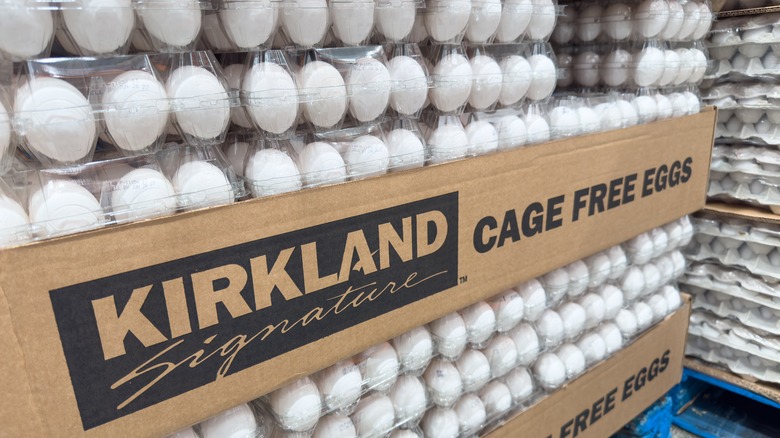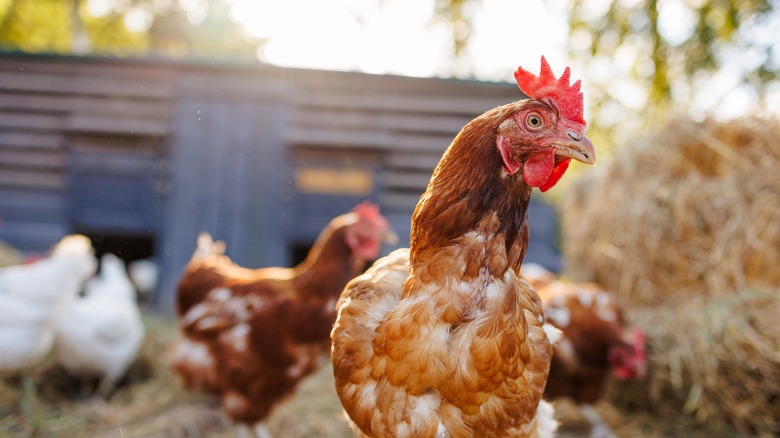Costco Sells A Ridiculous Amount Of Cage-Free Eggs Each Year
If you're a Costco shopper, you likely already know about this retailer's well-priced packages of two dozen cage-free eggs. It comes as no surprise, then, that Costco sells a lot of them. Cage-free eggs come from chickens who are not confined to inhumane cages. With hundreds of stores worldwide and an increasing commitment to cage-free eggs, the numbers have been growing exponentially.
In 2015, a Costco representative said the retailer sold 2.9 billion eggs, and 763 million of them were cage-free, accounting for 26% of the store's total sales (per Fox Business). As of September 2022, 97% of Costco's eggs are sold cage-free, increasing that number exponentially (via Costco). The Kirkland-brand Signature Liquid Eggs are entirely cage-free in the U.S.
"The transition to cage-free eggs will continue to increase with added availability and capacity of cage-free production," the Costco statement read. Costco assesses its egg suppliers' hens in five categories: nutrition, environment, health, behavior, and mental state. Suppliers are also required to complete audits twice a year, complete with photos to keep them accountable.
The food industry has seen a dramatic rise in customer expectations of food quality and safety. As of 2022, more than 40% of all consumers in the U.S. are willing to pay more for sustainably sourced items when grocery shopping (per Statista).
Is it worth it to buy cage-free eggs?
At the end of the day, buying cage-free eggs or pasture-raised eggs instead of conventionally-raised eggs is a customer choice. According to the Humane Society of the United States, the vast majority of egg-laying hens in the U.S. live in battery cages smaller than a single sheet of letter-size paper — standards set by the United Egg Producers require a minimum of just 67 square inches of space per hen.
Alternatively, hens raised cage-free can lay their eggs in an open indoor space. Cage-free facilities do vary significantly in size and quality, but, generally, eggs produced by chickens in cage-free facilities are considered more humane.
One of the world's leading poultry welfare experts, Dr. Michael Appleby, wrote that "cage-free egg production, while not perfect, ... is a very good step in the right direction for the egg industry" (via the Humane Society). But because raising hens cage-free takes more space, time, and manpower, these eggs may cost significantly more. On Instacart, a 24-count of Kirkland Signature Cage-Free Eggs will run about $6 or $7 while a 24-count of Kirkland Signature Free-Range Eggs will run about $8 or $9.
If the quality of life of your egg-laying chicken is important to you, look for eggs labeled Certified Humane or American Humane Certified, both of which require cage-free hens to have access to outdoor space for a specific amount of time. Buying organic eggs at the grocery store means the chickens must eat a diet free of synthetic pesticides, and, while all the egg carton labels can be confusing, you can trust that cage-free or free-range labels are a good way to go as well.


